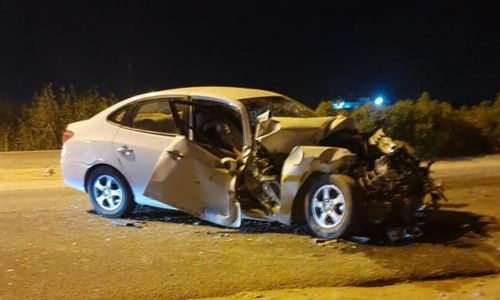Two Bahraini women were recently injured in a car accident in Iraq and are currently receiving treatment at a private hospital in Najaf. One of the women sustained a pelvic fracture, while the other had shoulder surgery. The family of the two victims has reached out to Bahraini authorities to expedite their return for further treatment, as they are concerned about the limited care available at the hospital in Najaf. The family also mentioned that the women’s mental state is poor, which is affecting their recovery, and highlighted the hospital’s lack of modern facilities.
The family of the injured women expressed gratitude towards the Bahraini Embassy, the Ministry of Foreign Affairs, and the Ministry of Health for their support thus far. They are hoping for swift action to facilitate the women’s return to Bahrain for better medical care. The situation underscores the importance of having access to quality healthcare facilities, especially in emergencies such as car accidents occurring abroad. It is crucial for authorities to prioritize the well-being and recovery of their citizens in such circumstances.
Ensuring timely and effective medical care for citizens in need, especially during emergencies, should be a top priority for government authorities. The family of the two injured Bahraini women is rightfully concerned about the limited care available at the hospital in Najaf, highlighting the importance of having access to modern medical facilities to ensure proper treatment and recovery. Their plea for expedited return for further treatment reinforces the need for efficient coordination between diplomatic entities to prioritize the well-being of citizens in distress.
The current situation faced by the two Bahraini women underscores the challenges that can arise when accidents occur abroad and the urgency of ensuring access to adequate medical care. The family’s call for assistance from Bahraini authorities highlights the need for prompt action in facilitating the return of citizens for further treatment. It is essential for authorities to work together seamlessly to ensure that citizens receive the necessary care and support in times of crisis, emphasizing the importance of diplomatic efforts in such situations.
As the two Bahraini women continue to receive treatment in Najaf, their family’s concerns regarding the limited care available at the hospital and the women’s poor mental state emphasize the importance of addressing the holistic needs of individuals in medical emergencies. The support extended by the Bahraini Embassy, the Ministry of Foreign Affairs, and the Ministry of Health reflects the collaborative efforts aimed at ensuring the well-being of citizens in distress. By prioritizing the prompt return of the injured women for further treatment, authorities can demonstrate their commitment to supporting citizens in need.
In conclusion, the situation faced by the two injured Bahraini women in Iraq highlights the complexities and challenges that can arise in emergencies occurring abroad. The plea for expedited return for further treatment underscores the need for efficient coordination between government entities to ensure the well-being of citizens. By prioritizing access to quality healthcare facilities and swift action in facilitating medical care for citizens in distress, authorities can demonstrate their commitment to supporting and protecting the welfare of their people. Efforts to address the holistic needs of individuals in medical emergencies are essential in safeguarding the health and recovery of citizens, especially in critical situations like the one faced by the two Bahraini women in Najaf.











